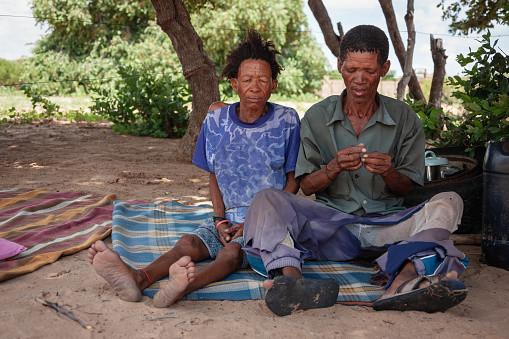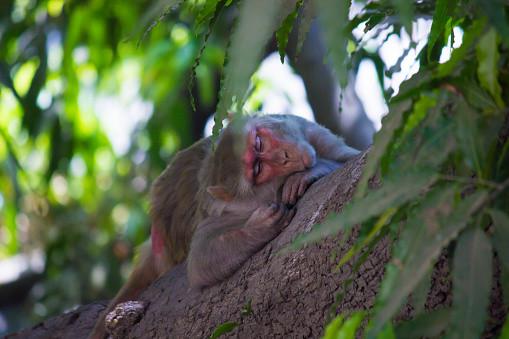Explore the World's Best Ideas
Join today and uncover 100+ curated journeys from 50+ topics. Unlock access to our mobile app with extensive features.
Humans need less sleep
The San hunter-gatherers of Namibia have no electric lights or new Netflix releases that keep them awake. Yet, they don't sleep more than the typical Western city-dweller who stays up doom-scrolling on their smartphone.
- Research shows that people in non-industrial societies average less than seven hours a night.
- Chimps sleep around 9.5 hours out of 24. Three-striped night monkeys sleep for 17 hours a day.
The various ways that human sleep is unusual. We spend fewer hours asleep than our nearest relatives, and more of our night sleep is spent in the rapid eye movement or REM phase.
10
224 reads
The human sleep paradox is the result of our evolutionary history
To learn about how ancient humans slept, anthropologists study contemporary non-industrial societies, such as the Hadza hunter-gatherers of Tanzania and various groups in Madagascar, Guatemala, and elsewhere. Sleep across all three groups averages around 5.7 - 7.1 hours, which is much less than primates.
Evolutionary anthropologist David Samson thinks the evolution of human sleep is a story about safety in numbers when humans began sleeping on the ground and napping often.
10
188 reads
Human sleep isn't exceptionally short
The threat of predators may have led humans to sleep less than tree-living primates. Yet, scientists point out that existing data about sleep in primates come from captive animals, who may sleep more because the animals are bored.
Having data from more wild animals would help sleep researchers although it is more challenging to do. If scientists had a clearer picture of primate sleep in the wild, it might turn out that human sleep isn’t as exceptionally short as it seems.
10
167 reads
Unsatisfied sleepers
How much we sleep is different from how much we wish we slept. Research from 2017 shows that out of 37 people, 35 said they slept just enough. On average, they slept about 6.25 hours a night. But they awoke frequently and needed more than 9 hours in bed to get those 6.25 hours.
By contrast, a 2016 study of nearly 500 people found they spend almost all of their time in bed asleep and got about 7 hours of sleep, yet 87 percent in a 2020 survey said they didn't feel rested at least one day per week.
A better understanding of how human sleep evolved could help people rest better.
10
165 reads
IDEAS CURATED BY
Always appreciate the time you get, because you never know how much longer it`ll last.
Brantley 's ideas are part of this journey:
Learn more about scienceandnature with this collection
How to make sustainable choices in everyday life
Identifying ways to reduce waste and conserve resources
Understanding the impact of human actions on the environment
Related collections
Similar ideas
3 ideas
2 ideas
Ancient humans learned to teach when they invented complex tools
sciencefocus.com
4 ideas
Read & Learn
20x Faster
without
deepstash
with
deepstash
with
deepstash
Personalized microlearning
—
100+ Learning Journeys
—
Access to 200,000+ ideas
—
Access to the mobile app
—
Unlimited idea saving
—
—
Unlimited history
—
—
Unlimited listening to ideas
—
—
Downloading & offline access
—
—
Supercharge your mind with one idea per day
Enter your email and spend 1 minute every day to learn something new.
I agree to receive email updates


